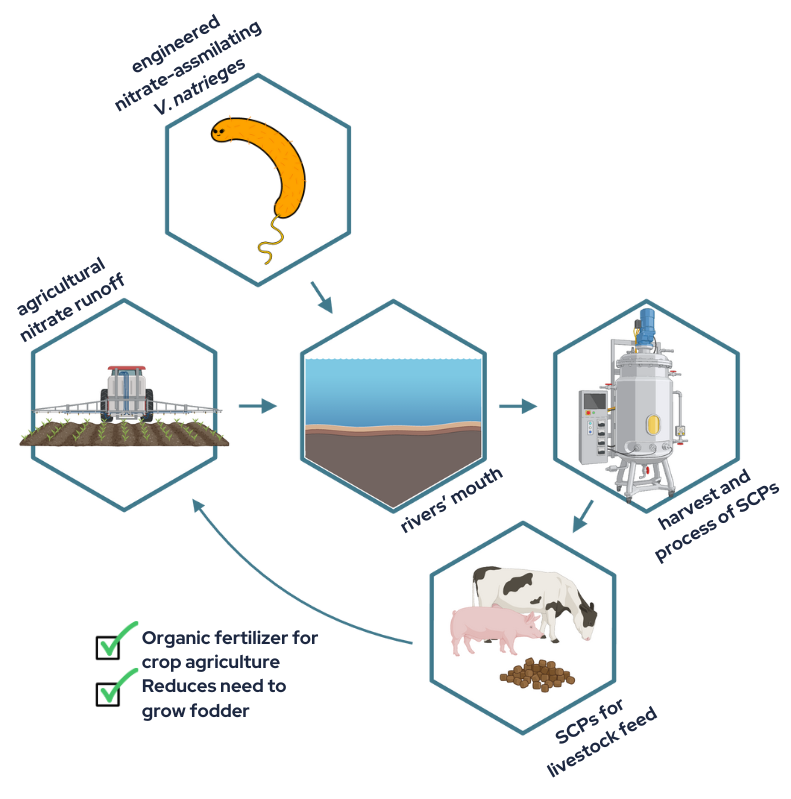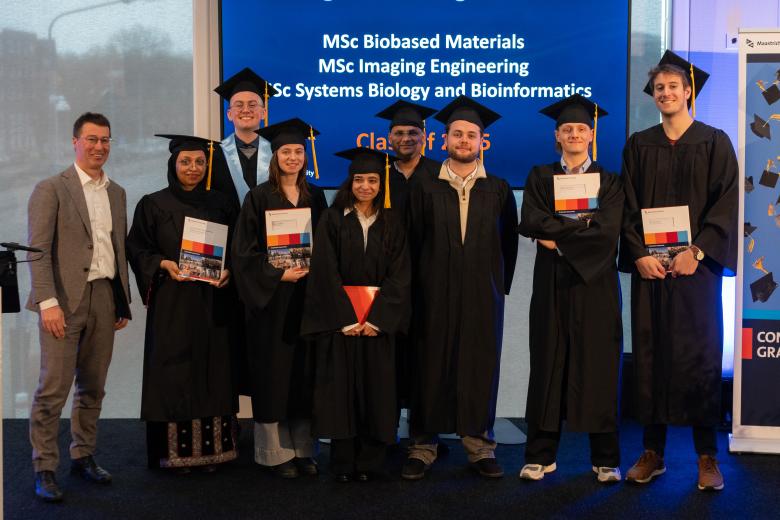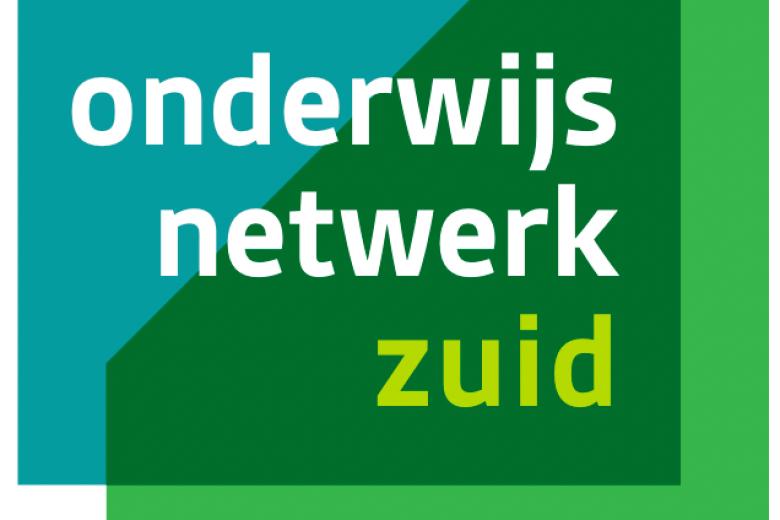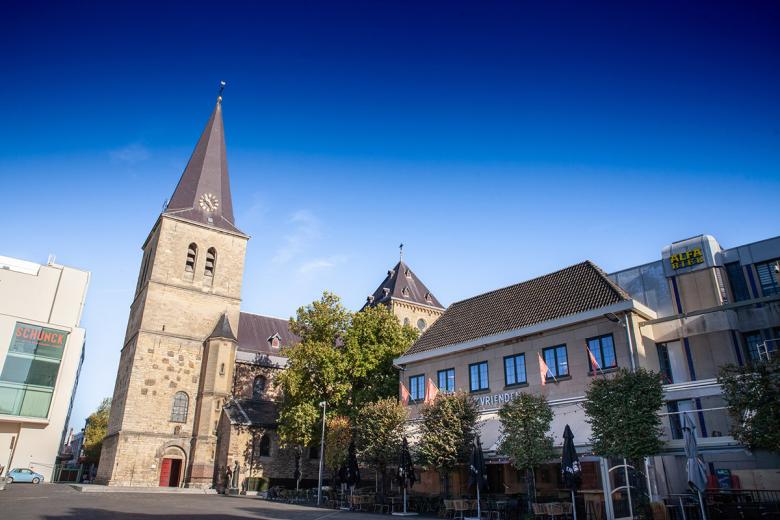Student team wins gold for second time in prestigious iGEM competition
For the second time in a row, a UM team has managed to win a gold medal in the prestigious iGEM (International Genetic Engineered Machine) competition in synthetic biology. The 'Natronaut' team, consisting of 13 students from the Maastricht Science Program and Circular Engineering, worked for 8 months to find a solution to eutrophication, water pollution caused by over-fertilization in agriculture that can cause suffocating algae growth in rivers to coastal water.
Through synthetic biology and genetic modification, the team, guided by Dr. Erik Steen Redeker and Dr. David Cortens of the Maastricht Science Program, developed bacteria that can extract nitrates from seawater and then use them to make additional proteins. This in turn could be used in animal feed.
The students not only worked on the scientific elaboration of the project but also sought funding, talked to various experts and stakeholders, organized an online “Sustainable Development Symposium” with international speakers, and gave on-site classes at high schools in Brussels and Vietnam.
With the results of this project, the team traveled to Paris late last month, along with some 400 other teams from around the world, for the iGEM Final Jamboree. There they successfully presented and defended the project before a professional jury, and were awarded a gold medal for the second time in a row for doing so.
If you have questions about this project, iGEM in general, or are interested in being part of the next iGEM team, please email erik.steenredeker@maastrichtuniversity.nl.

Also read
-
Ron Heeren appointed fellow of the Netherlands Academy of Engineering
Professor Ron Heeren, distinguished university professor at Maastricht University (UM) and director of the Maastricht MultiModal Molecular Imaging Institute (M4i), was appointed as a fellow of the Netherlands Academy of Engineering (NAE) on Thursday 11 December.
-
A strong education network for Brabant and Limburg: better alignment, less dropout
On November 24, 2025, secondary schools (VO) and higher education institutions (HO) in Brabant and Limburg signed up for the Education Network South Netherlands: one VO-HO network that will improve the flow of students to further education and reduce dropout rates.
-
Municipality of Heerlen, Parkstad Urban Region and UM invest 6 million in collaboration
Heerlen grants a one-time contribution of €1,478,050 to Maastricht University as part of the Regio Deal application ‘Fundament onder UM-onderwijs in Heerlen’ . This amount comes from the Fonds Economische Structuurversterking (FES) . The funding will help establish university education facilities in...